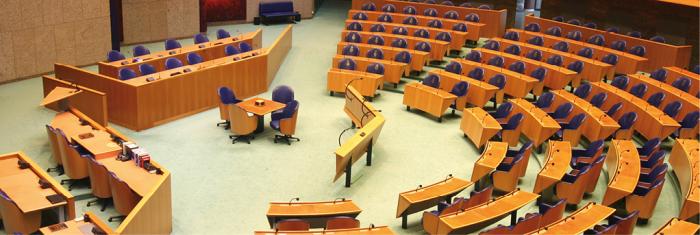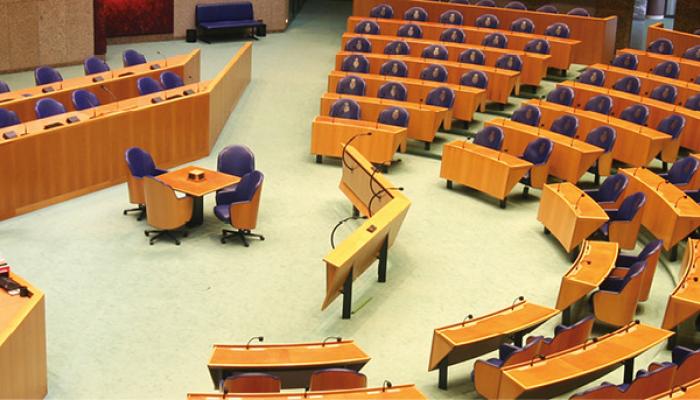
4.48 А як щодо політики, економіки та навколишнього середовища?
Наше суспільство складається з людей різного походження та віросповідання, які намагаються жити разом у мирі. Важливим завданням християн є участь у житті суспільства, а політика відіграє центральну роль у суспільному житті. У політиці також основою повинні бути Євангеліє і вчення Церкви.
Це означає, наприклад, що економічна діяльність має служити інтересам усіх членів суспільства, багатих чи бідних. Ми відповідаємо за належне управління землею та її природними ресурсами. Важливо поважати Боже творіння.
In what way do Christians participate in political and social life?
The lay faithful take part directly in political and social life by animating temporal realities with a Christian spirit and collaborating with all as authentic witnesses of the Gospel and agents of peace and justice. [CCCC 519]
Are Christians obliged to become involved in politics and society?
It is a special duty of the Christian laity people to become involved in politics, society, and commerce in the spirit of the Gospel: in charity, truth, and justice. Catholic social teaching offers them clear guidance in this endeavor.
Partisan political activity is, however, incompatible with the ministry of bishops, priests, and religious, who must be of service to everyone. [Youcat 440]
How should social and economic life be pursued?
It should be pursued according to its own proper methods within the sphere of the moral order, at the service of the whole human being and of the entire human community in keeping with social justice. Social and economic life should have the human person as its author, center, and goal. [CCCC 511]
What is the Church’s stance on capitalism or the free-market economy?
Any form of capitalism that is not embedded in an established system of law runs the risk of detaching itself from the common good and becoming a mere means for individuals to make profits. The Church rejects that decisively. On the other hand, she supports a free-market system which is at the service of man, prevents monopolies, and ensures that all are supplied with employment and vitally necessary goods.
Catholic social teaching evaluates all societal arrangements according to whether they serve the common good (common good), which means: to the extent that they enable “men, families, and associations more adequately and readily [to] attain their own perfection” (Second Vatican Council, GS). This is also true of commerce, which in the first place should be at the service of man. [Youcat 442]
What does the Church say about globalization?
Globalization is in itself neither good nor bad; it is, rather, the description of a reality that must be shaped. “Originating within economically developed countries, this process by its nature has spread to include all economies. It has been the principal driving force behind the emergence from underdevelopment of whole regions, and in itself it represents a great opportunity. Nevertheless, without the guidance of charity in truth, this global force could cause unprecedented damage and create new divisions within the human family” (Pope Benedict XVI, CiV).
When we buy inexpensive jeans, we should not be indifferent to the conditions in which they were manufactured, to the question of whether or not the workers received a just wage. Everyone’s fortune matters. No one’s poverty should leave us indifferent. On the political level, there is a need for “a true world political authority” (Pope Benedict XVI, CiV [citing Bl. John XXIII, Encyclical Pacem in terris]) to help reach a compromise between the people in the rich nations and those in underdeveloped countries. Far too often the latter are still excluded from the advantages of economic globalization and have only burdens to bear. [Youcat 446]
What does the seventh commandment require?
The seventh commandment requires respect for the goods of others through the practice of justice and charity, temperance and solidarity. In particular it requires respect for promises made and contracts agreed to, reparation for injustice committed and restitution of stolen goods, and respect for the integrity of creation by the prudent and moderate use of the mineral, vegetable, and animal resources of the universe with special attention to those species which are in danger of extinction. [CCCC 506]
What attitude should people have toward animals?
People must treat animals with kindness as creatures of God and avoid both excessive love for them and an indiscriminate use of them especially by scientific experiments that go beyond reasonable limits and entail needless suffering for the animals. [CCCC 507]
What is forbidden by the seventh commandment?
Above all, the seventh commandment forbids theft, which is the taking or using of another’s property against the reasonable will of the owner. This can be done also by paying unjust wages; by speculation on the value of goods in order to gain an advantage to the detriment of others; or by the forgery of checks or invoices. Also forbidden is tax evasion or business fraud; willfully damaging private or public property; usury; corruption; the private abuse of common goods; work deliberately done poorly; and waste. [CCCC 508]
How should we treat the environment?
We fulfill God’s commission with regard to creation when we care for the earth, with its biological laws, its variety of species, its natural beauty, and its dwindling resources, as a living space and preserve it, so that future generations also can live well on earth.
In the Book of Genesis, God says, “Be fruitful and multiply, and fill the earth and subdue it; and have dominion over the fish of the sea and over the birds of the air and over every living thing that moves upon the earth” (Gen 1:28). Having “dominion over the earth” does not mean having an absolute right to dispose arbitrarily of animate and inanimate nature, animals, and plants. Because man is created in God’s image, he should care for God’s creation as a shepherd and steward. For the first book of the Bible also says, “The Lord God took the man and put him in the garden of Eden to till it and keep it” (Gen 2:15). [Youcat 436]
How should we treat animals?
Animals are our fellow creatures, which we should care for and in which we should delight, just as God delights in their existence.
Animals, too, are sentient creatures of God. It is a sin to torture them, to allow them to suffer, or to kill them uselessly. Nevertheless, man may not place love of animals above love of man. [Youcat 437]
Перше, чим переймається «Отче наш», полягає в тому, щоб прославилося ім’я Бога, щоб прийшло Його Царство, щоб здійснилася Його воля. Якщо це наш пріоритет, то все інше буде додано нам до цього. Прогрес у науці, економіці, соціальній організації та культурі не позбавить нас нашої людяності, але відображатиме любов, яка лише дає життя, сенс і радість нашим людським зусиллям. [Папа Іван Павло II, Проповідь у Тромсе, 2 червня 1989 р.]





